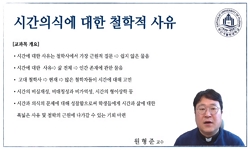연구 목적: 본 연구는 청소년기 후기 대학생들을 대상으로 생명의료윤리의식, 도덕적 자아존중감 및 자아개념 정도와 그 관계를 파악하기 위함이다. 연구 방법: 본 연구의 대상자는 대한민...
http://chineseinput.net/에서 pinyin(병음)방식으로 중국어를 변환할 수 있습니다.
변환된 중국어를 복사하여 사용하시면 됩니다.
- 中文 을 입력하시려면 zhongwen을 입력하시고 space를누르시면됩니다.
- 北京 을 입력하시려면 beijing을 입력하시고 space를 누르시면 됩니다.

Self-Esteem and Moral Self-Concepts among Late Adolescence Undergraduate = 청소년기 후기 대학생의 도덕적 자아존중감과 자아개념
한글로보기https://www.riss.kr/link?id=A108550461
- 저자
- 발행기관
- 학술지명
- 권호사항
-
발행연도
2023
-
작성언어
-
- 주제어
-
KDC
331
-
등재정보
KCI등재후보
-
자료형태
학술저널
-
수록면
115-131(17쪽)
- 제공처
-
0
상세조회 -
0
다운로드
부가정보
국문 초록 (Abstract)
연구 목적: 본 연구는 청소년기 후기 대학생들을 대상으로 생명의료윤리의식, 도덕적 자아존중감 및 자아개념 정도와 그 관계를 파악하기 위함이다. 연구 방법: 본 연구의 대상자는 대한민국의 청소년기 후기 대학생 268명이 최종 참여자로 횡단적 단면연구를 하였다. 수집된 자료는 SPSS WIN 18.0을 이용하여 전산통계 처리하였으며, t-test와 분산분석을 통해 대상자의 일반적인 특성과 자료를 분석하였다. 연구 결과: 대상자의 생명의료윤리의식 정도는 2.01±0.20점(4점 척도)이었으며, 도덕적 자아존중감과 자아개념은 각각 2.04±0.45점, 2.17±0.31점으로 중간 정도를 나타내었다. 도덕적 자아존중감은 자아개념과(r=.596, p<.001), 생명의료윤리의식은 자아개념과(r=.157, p=.011) 정적 상관관계를 보였다. 또한, 생명의료윤리의식의 하부영역 중 생식 윤리(r=.124, p=.043), 생존권 윤리(r=.147, p=.016)도 자아개념과 정적 상관관계를 나타내었다. 연구 제안: 본 연구의 결과로 생명의료윤리교육은 생식, 생존권, 죽음의 윤리를 포함하여 청소년기 후기 대학생의 고민과 갈등이 연계될 수 있어야 할 것이다.
다국어 초록 (Multilingual Abstract)
Background/Objectives: The purpose of this study was to evaluate the level of awareness of biomedical ethics, moral self-concepts and self-esteem among late adolescence undergraduate. Methods/Statistical analysis: This study employed a cross-sectional...
Background/Objectives: The purpose of this study was to evaluate the level of awareness of biomedical ethics, moral self-concepts and self-esteem among late adolescence undergraduate. Methods/Statistical analysis: This study employed a cross-sectional survey design. The participants were 268 late adolescence undergraduate in South Korea. The statistical analyses include descriptive statistics of the respondents’ general characteristics and the data were analyzed with a t-test and ANOVA by using the SPSS WIN 18.0 program. Findings: The average score for awareness of biomedical ethics was 2.01±0.20 (using a 4-point Likert scale); the scores for self-esteem and moral self-concepts were 2.04±0.45, and 2.17±0.31 respectively. Self-esteem showed a positive correlation with moral self-concepts (r=.596, p<.001); and awareness of biomedical ethics showed a positive correlation with moral self-concepts (r=.157, p=.011). Reproductive ethics (r=.124, p=.043) and the right to life (r=.147, p=.016), which are sub-domains of awareness of biomedical ethics, also showed positive correlations with moral self-concepts. Improvements/Applications: The results of this study suggest that education on biomedical ethics should focus primarily on reproductive ethics, the right to life, and the ethics of death.
목차 (Table of Contents)
- Ⅰ. Introduction
- Ⅱ. Subjects and methods
- Ⅲ. Results
- Ⅳ. Exploration
- Ⅰ. Introduction
- Ⅱ. Subjects and methods
- Ⅲ. Results
- Ⅳ. Exploration
동일학술지(권/호) 다른 논문
-
- 한국청소년상담학회
- 박봉환(Bong-Hwan Park)
- 2023
- KCI등재후보
-
- 한국청소년상담학회
- 서종수(Jong-Soo Seo)
- 2023
- KCI등재후보
-
- 한국청소년상담학회
- 차윤정(Yoon-Jung Cha)
- 2023
- KCI등재후보
-
사회적 지지가 여성장애인의 양육 스트레스와 우울감에 미치는 영향: 전라북도 거주 여성장애인을 대상으로
- 한국청소년상담학회
- 홍은정(Eun-Joung Hong)
- 2023
- KCI등재후보




 스콜라
스콜라






